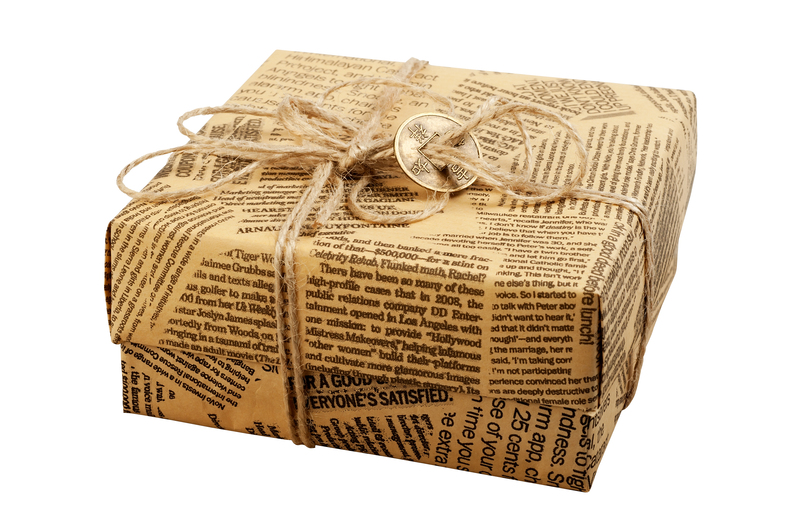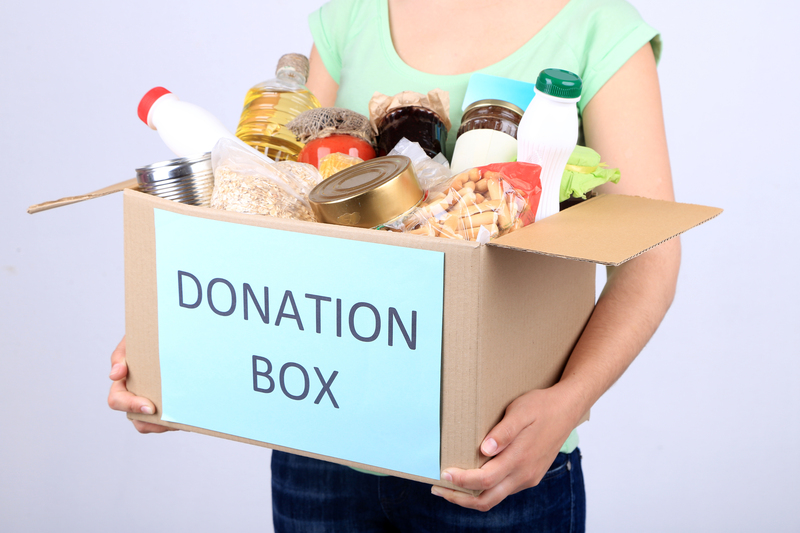Save Money and Time on Large Waste Item Pickups: Your Ultimate Guide
Every homeowner or business is likely to encounter the challenge of disposing of large waste items at some point. Whether you're clearing an estate, renovating, downsizing, or simply replacing old furniture and appliances, knowing how to save money and time on large waste item pickups is crucial. In this comprehensive article, we'll explore cost-effective, efficient, and eco-friendly ways to deal with bulky trash removal for both residences and businesses.

Understanding Large Waste Item Pickup
Before diving into strategies to optimize your bulky waste disposal, it's essential to understand what constitutes a large waste item. Cities and private companies often define these as items that are too big to fit in standard trash bins -- for example:
- Old mattresses and bed frames
- Large appliances (refrigerators, washing machines)
- Furniture (couches, cabinets, tables)
- Construction debris
- Yard waste (branches, logs)
- Electronic waste (TVs, computers)
Because such items require special handling, disposal can quickly become costly and time-consuming if you don't know your options.
Why Smart Bulky Item Pickup Matters
Handling large waste properly is not just about getting rid of stuff; it's about efficiency and environmental responsibility. You can save significant money and hours of your time if you're strategic. Meanwhile, mishandling these items can lead to:
- Higher landfill fees or fines for improper disposal
- Increased hauling time and physical effort
- Environmental harm if items aren't recycled or reused
Top Strategies to Save Money and Time on Large Waste Item Pickups
1. Assess What Really Needs to Go
Before scheduling a large waste item pickup, inventory your items and determine what actually needs removal. Ask yourself:
- Can any items be reused, donated, or sold?
- Can you break down or disassemble bulky items to reduce volume?
- Are there local regulations or free municipal pickups?
This step often saves both time and money by reducing the volume of things you need to dispose of.
2. Leverage Free or Low-Cost Pickups Offered by Your City
Most local governments provide free bulky waste pickup on certain days or as part of scheduled curbside pickups. To make the most of these:
- Check your city's website for bulky item collection schedules
- Register in advance if an appointment is required
- Follow rules for acceptable items, bundling, and placement
Using municipal services is one of the most cost-effective ways to dispose of large waste items.
3. Compare Private Haulers and Junk Removal Companies
If you're outside city limits or need a faster service, consider private junk removal services. However, prices can vary dramatically:
- Request itemized estimates from several providers
- Ask about discounts for multiple items or combined loads
- Read reviews for companies known for efficiency and fair pricing
Price-shopping and checking credentials can help you save big on bulk waste hauls.
4. Opt for Roll-Off Dumpster Rentals for Major Projects
When tackling large-scale cleanouts or renovations, renting a roll-off dumpster may be your best bet. Consider:
- The size of the dumpster versus your load (don't pay for more space than you need!)
- Combining your pickup with neighbors or friends to split costs
- Booking during off-peak times, when rental rates may be lower
This approach allows for flexible loading at your own pace -- saving money and time in the process.
5. Break Down Items to Reduce Volume and Cost
Many haulers and cities price service based on cubic yardage or item count. Disassembling furniture or bagging small debris can:
- Allow more waste to be picked up in a single load
- Lower the final cost if billed by volume
- Make pickups safer and faster for collectors
Investing a bit of effort in prepping your load means more for less!
6. Get Creative: Sell, Donate, or Give Away Usable Items
One person's trash is another's treasure! Rather than pay to haul or dump usable items, try these options:
- List on platforms like Craigslist, Facebook Marketplace, or Freecycle
- Contact local charities or thrift stores
- Host a curbside "free stuff" day in your neighborhood
Not only does this save money and time, but it's also eco-friendly.
7. Bundle Your Pickup with Regular Trash or Special Events
Some cities offer community cleanup days or extended curbside pickup events:
- Plan your cleanout to coincide with these times and maximize your allowed volume
- An annual cleanup day is often cost-free, compared to off-schedule pickups
This method is perfect for saving big on bulk waste disposal.
8. Follow Local Rules to Avoid Fines and Delays
Improperly placed or prohibited items can result in pickup refusals or fines. Be sure to:
- Check your city's waste website for current regulations
- Remove or drain hazardous materials from appliances
- Keep electronics, batteries, and chemicals separated if required
Observing these rules means your pickup will go smoothly and avoid unwanted charges.
Hidden Ways to Save Even More on Bulky Item Disposal
Sell Scrap for Cash
Some large items -- such as appliances, grills, or bed frames -- contain valuable metal. Local scrapyards often pay for:
- Steel
- Aluminum
- Copper (from old wiring or motors)
Selling scrap may offset removal costs -- a win-win for your wallet and the environment!
Community Sharing Solutions
Neighborhood associations, HOAs, or community groups frequently organize bulk pickup drives or "junk days." These collective solutions can:
- Lower costs through shared hauler fees
- Encourage item swaps and donations
- Build community goodwill
Ask your neighbors if they're planning a group event before booking on your own.
Tax Deductions for Donated Items
Donating large items to a registered charity isn't just good for the planet -- you may also qualify for a tax deduction. Be sure to:
- Get a receipt for all donated property
- Understand IRS rules for donations and fair market value
This can further offset your removal expenses.
Special Considerations for Businesses and Property Managers
Commercial locations, apartment complexes, and property managers often face recurring bulky waste challenges. To streamline operations and control expenses:
- Negotiate bulk contracts with haulers for scheduled pickups
- Set up secure onsite recycling and donation bins for tenants
- Educate employees and residents about approved items and collection dates
A little planning goes a long way in saving both money and time on large waste item pickups for multi-user properties.
Pro Tips: How to Prepare for a Smooth Large Waste Pickup
- Label and Sort - Separate bulky items from regular trash and recyclables for easy identification
- Plan Ahead - Schedule pickups during off-peak hours or days to avoid delays
- Safety First - Wear gloves and closed-toe shoes; lift heavy items with help to prevent injury
- Photograph Before Pickup - Snap pictures of what you're discarding for your records, or to dispute fees if needed
Eco-Friendly and Efficient: The Future of Bulky Waste Collection
More cities and waste companies are embracing sustainable and tech-savvy solutions to handle bulky waste pickups:
- Online booking tools let you schedule pickups and track haulers in real-time
- Specialized recycling centers extract more usable material from old items
- Donation pickup services (like The Salvation Army or Habitat for Humanity ReStore) make it easier than ever to give items a second life
Supporting these efforts is not only cost-efficient--it actively benefits your community and environment.

Frequently Asked Questions About Saving Money and Time on Large Waste Pickups
How much does large item waste pickup cost?
Costs range from free (via city programs) to several hundred dollars (for private junk removal or dumpsters). Factors include item type, load size, and your location.
Can I leave items on the curb for pickup?
Check your city's guidelines first. Many require scheduling or restrict certain items for curbside collection.
What items are typically rejected?
Hazardous waste (paints, chemicals), electronics, and construction debris often need special handling. Read your provider's or city's list of accepted items.
How can I avoid delays or failed pickups?
Prep your items well, schedule in advance, and strictly follow pickup rules.
Conclusion: The Smart Way to Save Time and Money on Bulky Waste Pickups
Efficiently managing large waste item disposal requires planning, creativity, and awareness of all available options. By leveraging city services, comparing haulers, preparing your load, and prioritizing reuse and recycling, you can save money and time on large waste item pickups--while minimizing stress and benefiting the planet. Next time you face a big cleanout, use these tips to make your process as seamless and cost-effective as possible.
